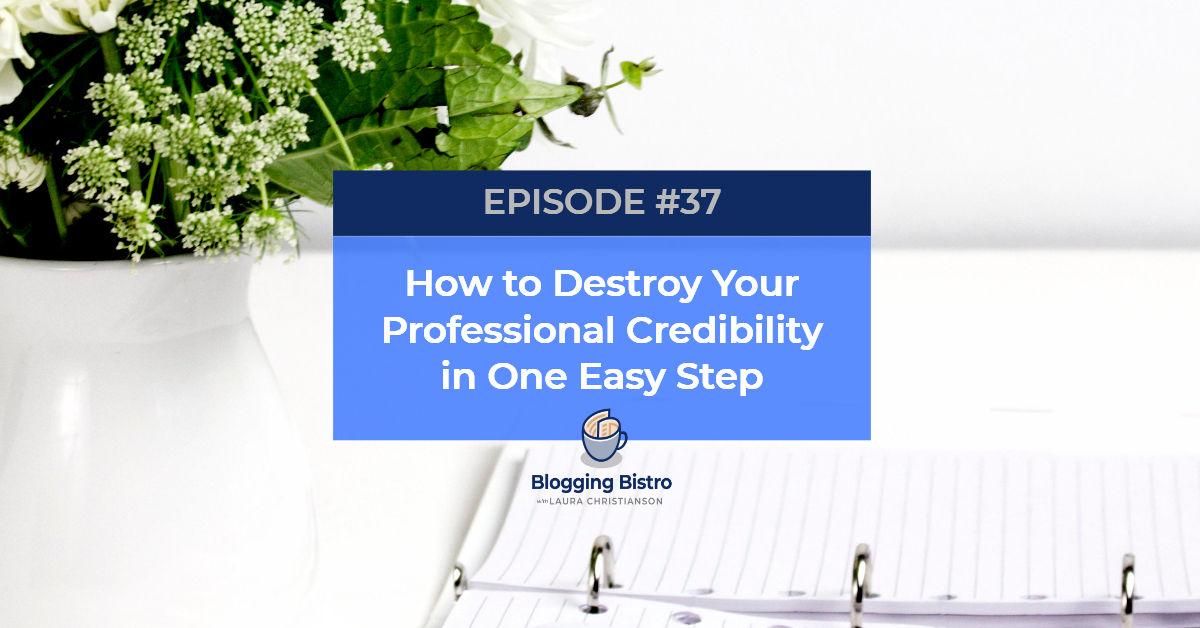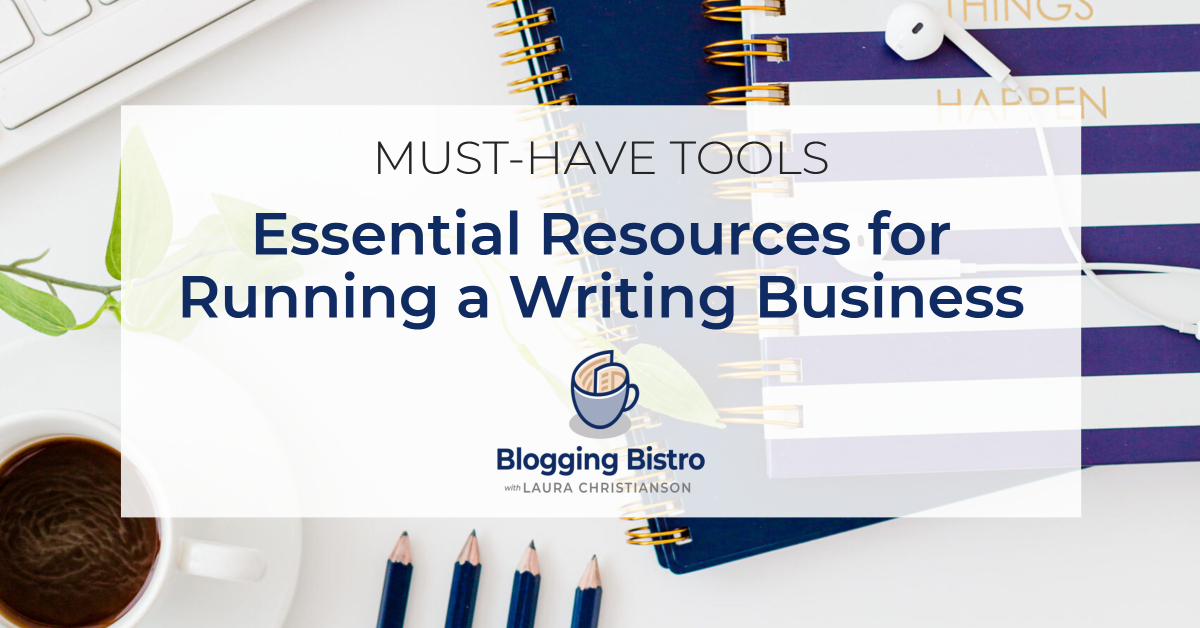37 – How to Destroy Your Professional Credibility in One Easy Step

Back in the day, when I checked my Facebook news feed, it was common to see selfies of people partying, stumbling drunk.
As social media gained traction, business owners and HR directors made it a habit to check out the social media profiles of prospective employees… to do a little cyber-snooping to see how the candidate conducted themselves during their off-hours.
A quick glance at a person’s feed can reveal a lot.
In the case of the person posting drunken selfies, the employer would likely conclude:
- If this person doesn’t care about sharing TMI online, I can’t trust them to protect the privacy of the information shared inside my company.
- This drunk person is boasting about making a poor choice. How will that translate to their reliability in showing up sober to work every day, on time, and doing their job at 100%?
Let’s flip that selfie upside down and say you’re the boss of your company – the CEO.
You post a picture or video of you staggering around, drunk, and your prospective clients and customers see that in your feed and have a similar reaction:
- She has self-control issues!
- She doesn’t know – or doesn’t care – about what’s appropriate to post online.
- If she acts like this away from work, what kind of a disaster can I expect her to be as a boss?
You might be wondering, “Laura, what does this have to do with me? I’ve never posted a drunken selfie and I never will.”
Ah… but some of you would… and you do.
Your version of the drunken selfie is a political post.
Last night, I was scrolling through my Facebook feed, and I spotted yet another meme (a meme is a graphic with words on it, intended for social sharing) that’s been making the rounds on Facebook.
The meme was a two-sided chart with bullet points on each side, comparing two candidates who are running for office.
The bullet points were riddled with inflammatory language. My summary of the bullet points:
- My candidate is God
- The other candidate is Satan
My Facebook friend tacked on a random Bible verse that was taken out of context but was apparently intended to convince doubters that God was on the side of the candidate – and of the person posting the meme – and that anyone who thought otherwise were going to burn in hell.
Based on the hundreds of comments this post received, it appears that a large number of people will be spending eternity in a fiery furnace.
Political posts are the new “drunk-at-a-party selfie.”
People of all ages, genders, and walks of life are thoughtlessly popping them into their personal Facebook feed.
When I saw this political meme – posted by one of my Facebook friends who I know in real life – several thoughts swirled through my mind.
My first reaction was disgust. “This person calls themselves a writer? They didn’t even bother to post an original thought!” (This meme was one of those mass-produced, knee-jerk, emotionally-charged graphics intended to wound.)
The only “thought” this person put into the post was adding a random Bible verse, which was apparently supposed to make the nonsensical meme crystal clear.
It did not. In fact, the addition of the Bible verse had exactly the opposite effect on me, and on most of the people who commented.
My own knee-jerk reaction was to think, “This person does not know the Bible well at all if they assume that God is going to ‘vote’ for their candidate.”
My next reaction was to vow, “I never want this person as a client in a million years.”
In the past, I have snoozed people for 30 days or unfollowed them, but last night, I realized I was done. “I’m fed up with this and I’m not going to take it anymore.”
I unfriended this person and then I got on a roll and unfriended about 1/3 of my entire list of friends – all the people who I rarely or never interact with.
I realize that’s an intense reaction based on one Facebook post. But it’s been a long time coming. I joined Facebook in 2007 and my policy for my personal profile has always been to friend ONLY people I know in real life, and my extended family. As such, I’ve limited my account to 150 friends or so. A few people crept in under the radar, probably during one of my weak moments when I felt in need of a connection with a person I’d never met.
Over the past year, I’ve been gradually unfollowing people and trying to wean myself away from the personal side of Facebook.
Political posts have been driving me nuts for months, and the political meme that appeared in my feed last night was the last straw.
You may be thinking, “Laura, I don’t like your judgmental attitude about posting political content on Facebook. I have every right to post my opinion.”
I agree. Yes, you do. But I don’t have to allow myself to be exposed to it. If you feel offended and stop listening to my podcast or unsubscribe from my email list or unfollow me or defriend me on social media, I’m fine with that.
Here’s why I’m fine with it:
If you are unwilling to entertain the notion that there are thoughtful people of faith whose political views may not be an exact match for yours… if you’re willing to consign nearly 50% of the voting public to the fiery depths – that shows me you aren’t teachable.
I don’t care whether your political views are far-left, far-right, or anywhere in between. I DO care that you are open to listening to viewpoints other than your own, thoughtfully discussing them, trying to discover commonalities you have with people who think differently than you. In a word, that you are teachable.
Political posts can decimate a writer’s brand
What bothers me about political posts is that many of the people publishing this type of content are writers who are working hard to build their platform and make a go of writing as a career.
Why would you post content that you know will alienate half your Facebook friends, damage your in-person relationships, and destroy your professional and personal credibility?
You might be thinking, “It’s my PERSONAL Facebook feed, Laura. No one notices or cares.”
Yes, they do notice. And they do care.
If you’re pitching a book project to a literary agent or acquisitions editor, what do you think is the first thing they do after reviewing your query or book proposal? They check out your website and your social media channels – both your professional pages AND your personal accounts.
Editors and agents are on high alert for the 2020 version of the “drunk partier selfie,” which is the “thoughtless political post.”
The words and pictures and videos they see in your personal feed give them a lot of information on which to base their evaluation of the way you’ll likely conduct yourself “on the job,” that is, when you are contracted to write a book for their publishing house.
They are watching, and watching closely, to see how you conduct yourself online, personally and professionally.
3 tips to avoid getting a rep as an alarmist writer
I have 3 tips to share with you that help me rein-in my own tendencies to publish reactionary political posts.
I first provided these tips in Episode #23: Dealing with Rants, Ridicule, and Crushing Criticism: How to Avoid Getting a Reputation as an Alarmist Writer.
Tip #1: You can’t please everyone. And you shouldn’t try to.
All of us are going to say and do things – whether intentionally or unintentionally – that cause others to decide they do not want to hang out with us. They do not want to be our Facebook friend, read our blog posts, watch our videos, listen to our podcasts, buy our books, or become our clients.
We enter the danger zone when we ignore the fact that EVERY WORD and EVERY IMAGE we post on social media has ramifications, not only for us personally, but also, for our brand.
When we are so convicted about the “rightness” of our political views that we feel compelled to share them on social media, we do so with the awareness that we will very likely decimate our credibility. We must be comfortable with and prepared for that possibility.
Tip #2: Resist the urge to retaliate.
When I saw that political post in my feed last night, the Force was strong with me to break out my light saber and cut down this person. (And I did retaliate, in a passive-aggressive sort of way, by unfriending them.)
I try – not always successfully – to abide by the 24-hour rule. I give myself at least 24 hours to work through my emotions privately so that if I respond, I feel more confident that I can be calm and rational, rather than emotional and reactive.
Tip #3: Acknowledge and learn from opposing viewpoints.
My first reaction, upon seeing a political post, is to jump straight to attacking someone’s character or shaming them. “That’s a ridiculous statement,” quickly morphs into “They’re just stupid.”
When I catch myself saying, “They are SO stupid,” I remind myself that my self-righteous, alarmist, reactionary thinking is the very thing that I am condemning in the person who irritated me! My behavior is not conducive to acknowledging the other person’s viewpoint.
I regularly remind myself:
“You are not God. It’s not your place to judge. You cannot read this person’s heart. Stop calling them names and look for ways to engage in conversation.”
It starts with one person, doesn’t it?
One person who is willing to “agree to disagree,” but to have an honest, thoughtful conversation rather than making a strident, “I’m right and you’re wrong” pronouncement.
I am vowing here, publicly, to be that one person. That person who tries – even though I fail often and miserably – to listen. To consider the ramifications before posting content that I know will be offensive and hurtful. To engage in conversation with people whose views I don’t understand.
Will you join me?
If each listener to this podcast committed to trying to do these things within our individual spheres of influence, imagine the positive impact we could make.
How to Keep Up With the Show
Click here to join my my email list and I’ll notify you about every episode. (When you subscribe, you’ll also get my free guide, Essential Resources for Running a Writing Business.)
Join The Professional Writer Podcast Community (private Facebook group), where we discuss what we’re learning, meet our guests, and encourage one another on our writing journeys.
If you know a writer who would be interested in The Professional Writer Podcast, please share this link with them:
https://bloggingbistro.com/podcast
Thank you!
Laura


